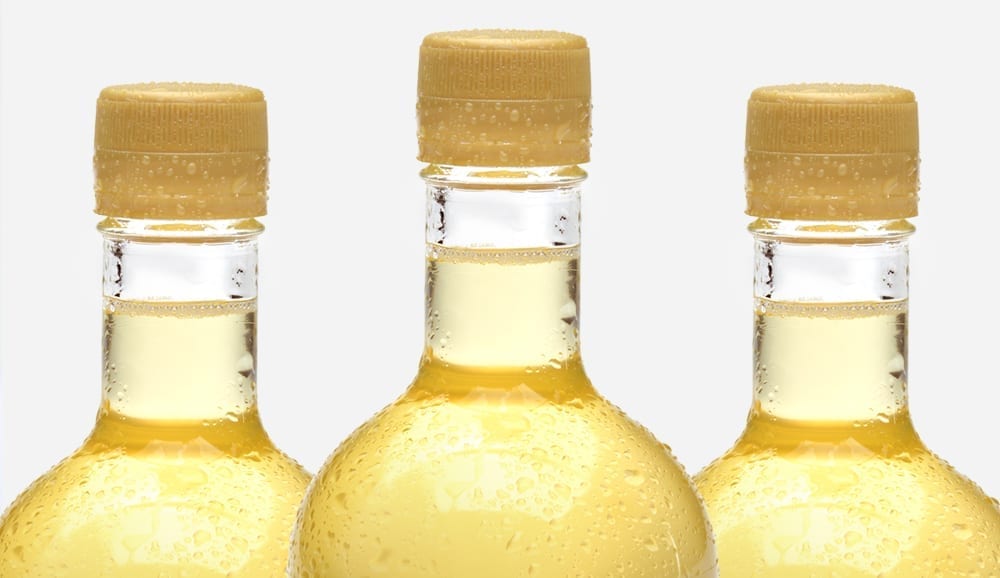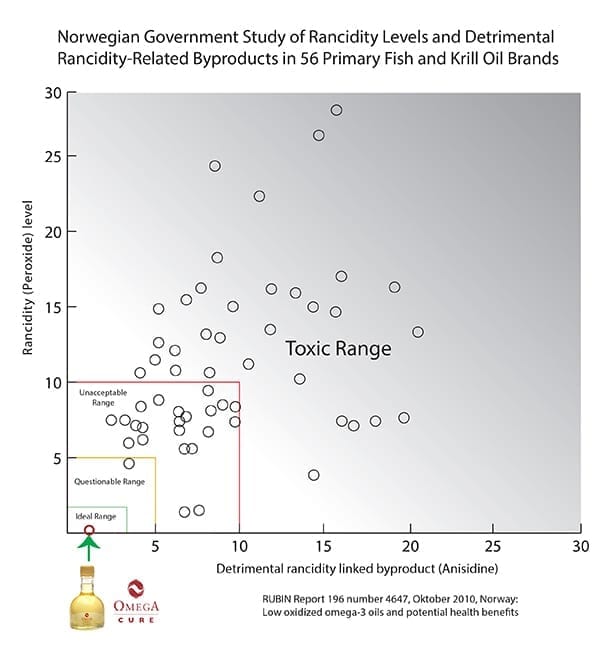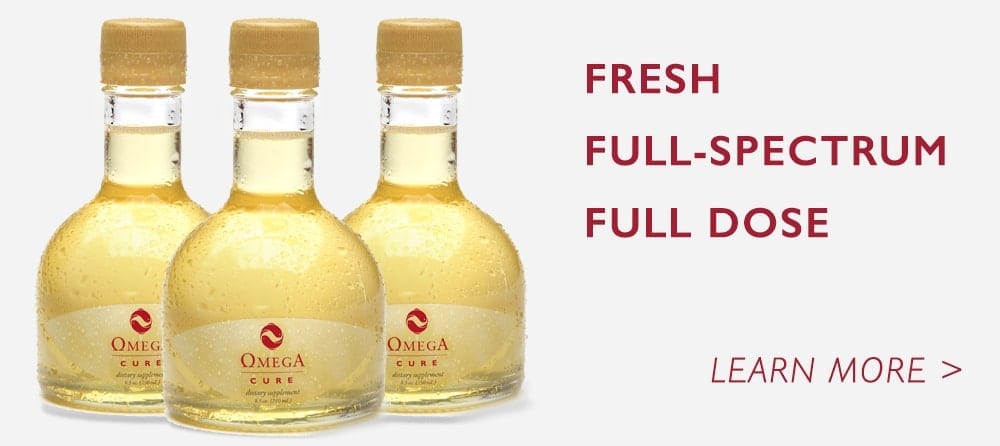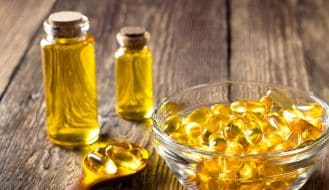9 Reasons Why Omega Cure Is the Best Fish Oil on the Market
Last week, I called one of our new customers to see how she’d been doing with her Omega Cure®, our full-spectrum liquid fish oil.
“It’s going fine,” she told me. “I’ve been taking it every day. But I’m unsure what makes Omega Cure worth the price, besides the fact that it is supposed to be very fresh.”
That phone conversation was a wake-up call. Whatever Bo and I had been doing, we weren’t talking enough about what made Omega Cure different from other omega-3 supplements.
The very next day, we sat down and created a handy comparison chart:
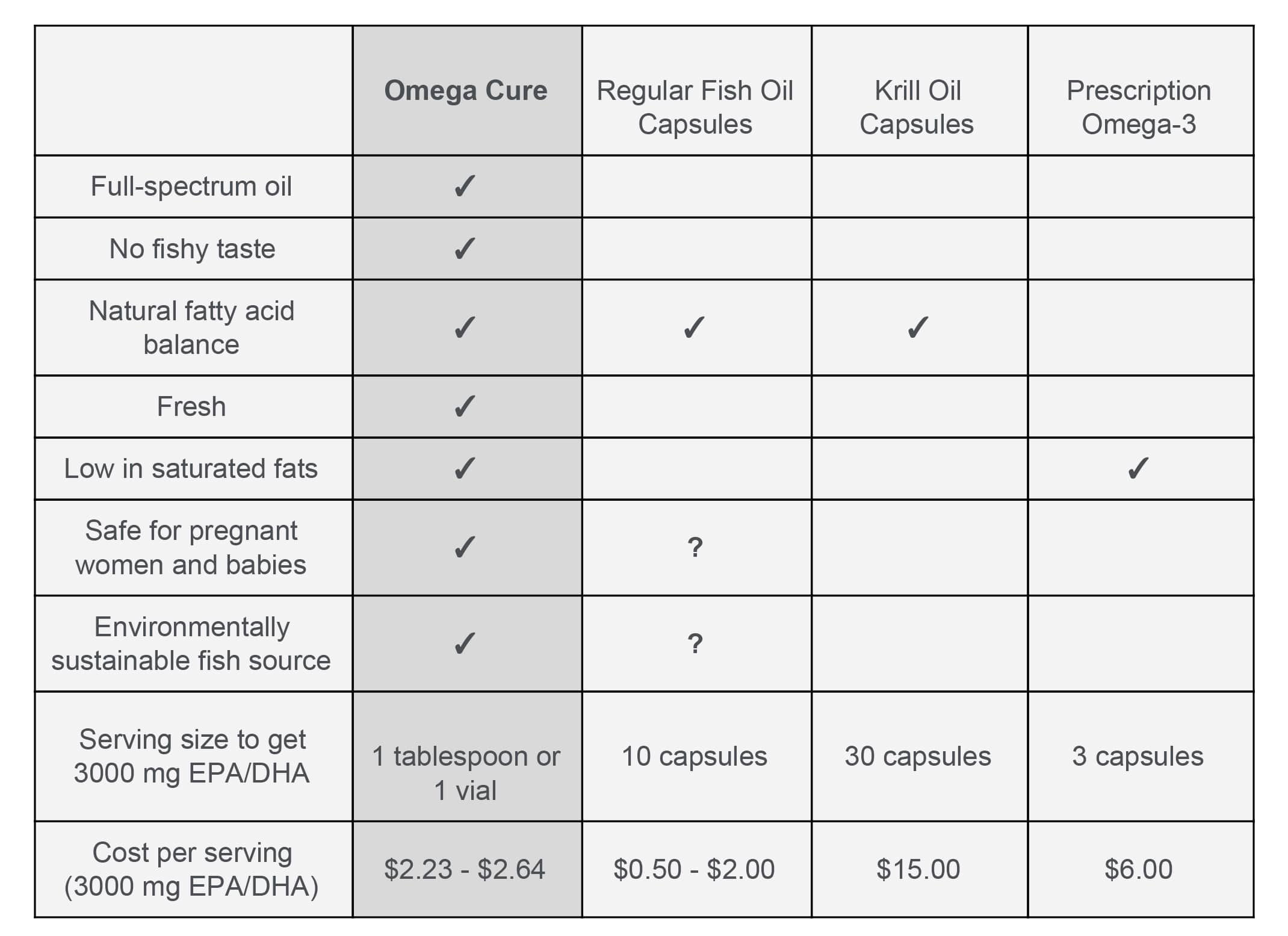
What Is Full-Spectrum Omega-3 Oil?
We use the term full-spectrum to describe a fish oil that has preserved its natural and nutritional integrity – much like extra virgin olive oil or whole grain bread. In our book, Omega Cure is the only full-spectrum fish oil on the market. This is because we don’t winterize our cod liver oil, or skim away a layer of oil during processing.
All fish oil manufacturers we’re aware of winterize their oil because it is easier to handle. However, testing reveals that the typically discarded oil is actually full of potent omega-3 fatty acids and nutrients.
In other words, when manufacturers skim their fish oil, they leave the consumer with just a portion of the fatty acid content found in fish. This is one of the reasons we believe Omega Cure, in all its full-spectrum glory, makes a bigger difference for our customers than typical fish oils.
Fresh Oil Should Have No Fish Taste
The taste of an omega-3 supplement is crucial for two reasons. First of all, it says something about the freshness of your product. Additionally, the taste will heavily influence your willingness to take the supplement every day.
Let’s face it, if your fish oil makes you pinch your nose or makes your spouse refuse to kiss you, you are not going to want to take it regularly. And honestly, if you don’t manage to take your omega-3 supplement on a regular basis, you won’t experience a big difference in your health either.
Fortunately, Omega Cure has no fishy taste or smell. The good taste and smell also explain why we are able to add Omega Cure to omega-3 foods, like our Omega Cookies and Omega Passion chocolates, without compromising the flavor. Not only will your palate and partner thank you, but the rest of your body will, too!
Get the Full Family of Omega-3s:
Because most omega-3 research has focused on EPA and DHA molecules, the omega-3 industry has gravitated towards producing prescription or “pharmaceutical grade” omega-3s. The main selling point of these products is that they deliver high levels of EPA/DHA in relatively few capsules.
To get those high levels of fatty acids into small servings of oil, however, manufacturers have to create new chemical structures – ethyl esters – which are not found in nature. In addition, to make space for the EPA/DHA, manufacturers remove the other types of omega-3 molecules and nutrients found in the natural oil.
This is unfortunate since scientists still have a lot to learn about omega-3s, the various substrates and cofactors, and what a good fatty acid ratio ought to be. We don’t have enough information yet, and — as with GMO foods — we won’t know the consequences of chemically manipulating our foods for a very long time.
Rather than going the artificial route, we favor using natural cod liver oil. In three teaspoons, you get as much EPA/DHA as you do in any of the prescription products. It’s worth noting that people have been using fish liver oils for millennia, and physicians have been writing medical papers about cod liver oil since the 1700s (1). With such a long history of safety and efficacy on our side, we feel confident in Omega Cure’s ability to deliver positive results.
Fresh Fish Oil Matters
Fresh omega-3 oil not only rules in the taste department, as mentioned above. A growing body of evidence also suggests that fresh oil is safer and more effective than rancid fish oil.
As an omega-3 product turns rancid, it creates new byproducts that could potentially be harmful. Some researchers speculate that excessively rancid oil may cause carcinogenesis and arteriosclerosis. Another study on rats found that oxidized fatty acids led to organ damage and inflammation (2). While researchers have more work to do in studying the effects of rancid oil, we can all use our intuition: We wouldn’t eat old, rotting fish for dinner, so why would we take eat old, rancid fish oil capsules?
Many companies may claim that their oil is fresh, but at the end of the day, break open the capsules and use your tastebuds. If the oil tastes and smells fishy, it’s rancid. If there is too much flavoring to get a good sense, ask to see the company’s peroxide and TOTOX values.
In our case, we have the freshness values to prove that Omega Cure is best in class.
Omega Cure Is Low in Saturated Fats
If you didn’t already know, omega-3 is a fat (hence the fatty acids part of the name). When you consume Omega Cure or any other kind of omega-3 product, you are consuming pure fat.
Since we’re out of the 90s fat craze, we all know that fat is not necessarily a bad thing. We need fats in order to be healthy, functioning individuals. But what many consumers aren’t aware of is, depending on the oil source, how much the nutritional profiles vary from one omega-3 supplement to another.
When an omega-3 oil comes from salmon, seal (banned in the USA) or cod livers like Omega Cure, only about 20% of the oil is made up of saturated fat. In contrast, herring and sardine sources of omega-3, typically coming from South America, contain about 50% saturated fats. This second group of South American oil makes up the vast majority of the world’s fish oil supply.
We’re not saying saturated fats are necessarily bad, but it is something for consumers to note when selecting their product.
Omega Cure Is Safe for Pregnant Women and Babies
As a fresh, purified cod liver oil, Omega Cure is safe for pregnant women and babies by FDA standards. Outside the USA, our products also meet all government and industry standards for contaminants and oxidation.
This is more than you can say about a number of omega-3 products, including rancid fish oils, ethyl esters, and krill oils. To extract the omega-3 from krill, for instance, the manufacturers often use heavy solvents, like ethanol, butanol, and acetone (3) – chemicals strong enough to cause a deadly explosion at one krill oil facility in 2012 (4). With that kind of chemical processing, it’s hard to feel certain that there are no residual solvents in the final product.
Our Fish Source Is Environmentally Sustainable
Omega Cure comes from wild cod caught off the northwest coast of Norway. In Norway, the government strictly regulates the fishing industry because fish is one of the nation’s key resources. Thus, each catch must meet strict quotas, preventing overfishing. Since the cod population is also currently growing in record numbers, it is more sustainable to fish than other seafood populations.
Furthermore, no part of the cod goes to waste. While the liver goes to create Omega Cure, the fish fillets make their way to fine seafood restaurants and fish counters.
An Easy to Swallow Daily Serving
Of all the points listed in the table, dosage is perhaps the biggest factor in determining whether or not people experience health benefits from their omega-3 supplement. For an adult with chronic inflammation, research studies demonstrate that consumers need at least 2700 mg of EPA/DHA daily – which translates into a lot of capsules in both the krill and fish oil department.
The reality is, you don’t actually get much oil in one fish oil capsule. Most of it is gelatin. And at the end of the day, there is no reason to get your omega-3 in capsules if your oil is fresh and palatable. That’s why we chose the liquid oil route.
The Most Optimal Cost Per Serving
When you start calculating the amount you’d pay to get an effective daily dose of EPA/DHA, Omega Cure becomes even more attractive. In terms of fish oil capsules, you don’t save a fortune going the low-quality route. Krill oil ends up being an extremely expensive omega-3 alternative. And as for prescription omega-3s, you end up shelling out about 3 times the amount of money you’d spend for the same EPA/DHA dose of Omega Cure. That’s pricey if your insurance doesn’t cover it!
Reviewing all the facts, Bo and I are confident there is no satisfactory alternative to taking Omega Cure.
Do you have a question about Omega Cure? Leave us a question in the comments below!
References:
1. Guy RA. The History of Cod Liver Oil as a Remedy. American Journal of Diseases of Children. 1923;26(2):112-116. doi:10.1001/archpedi.1923.04120140011002.
2. Albert BB, Cameron-Smith D, Hofman PL, Cutfield WS. Oxidation of Marine Omega-3 Supplements and Human Health. BioMed Research International, vol. 2013, Article ID 464921, 8 pages, 2013. doi:10.1155/2013/464921.
3. Krill Oil Information. Krill Oil Doctor.
4. Neptune at Fault in Deadly Plan Explosion, CSST Rules. CBC News. May 8, 2014.
Recent Posts
-
Omega-3, Weight Control
Anti-Inflammatory Diet: What To Eat & To Avoid
Inflammation is a double-edged sword. It’s the body’s natural defense system, springing into action to heal injuries and fight infections. But when it goes into overdrive and becomes chronic, it...2 weeks ago -
Dose, Omega-3, Omega3 Innovations News
How to Tell if Your Omega-3 Supplement Is Working
[vc_row][vc_column][vc_column_text]Whenever we pick up a new habit to improve our health -- be it working out with weights, cutting down on refined sugar, or taking three teaspoons of Omega Cure® every...1 month ago -
Omega-3
Can Omega-3 Fish Oil Help You Lose Weight?
Over the years, I've often heard people say, "I'm not sure about taking a fish oil supplement...won't omega-3 fatty acids make me fat?” Unfortunately, the notion that all fat is...1 month ago -
Omega-3
9 Foods That Are Very High in Omega-3s
Are you looking to boost your omega-3 levels? That’s a smart move, considering that a staggering 80% of people fail to get even half the recommended daily intake of these...1 month ago -
Brain Health
Does Melatonin Help With Anxiety?
Anxiety is on the rise, no doubt about it. In 2024, 43% of adults reported feeling more anxious than they did the year prior. That's up from 37% in 2023...2 months ago -
Omega-3
What Is DPA in Fish Oil? What You Should Know
In the omega-3 fatty acid world, there are plenty of types and acronyms that come to the family party. We've got EPA and DHA, the two omegas that usually take...3 months ago

